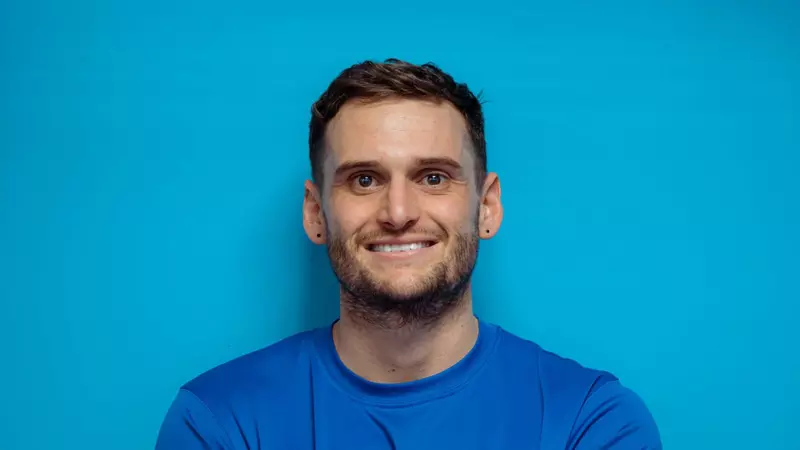Getting to know...a personal trainer for Parkinson's
We meet Tom Burridge, a personal trainer based in Exeter, who works with people with Parkinson’s.

Can you tell us a bit about your day-to-day work?
I currently work at Westbank. It's a charity that helps improve the health of communities across Devon.
We offer personal training and activity programmes. Local GPs and health professionals can also make exercise referrals to us.
I've been given the opportunity to work with a number of people living with Parkinson’s and create safe and effective fitness programmes. I'm a strong believer that everyone can benefit from some form of exercise.
What can someone expect from a personal training session?
Different things will shape what your personal training session will look like. This includes the stage of your condition.
The main goal of each session is to focus on exercises that work different muscle groups at the same time). This can help strengthen your upper and lower body.
One of the advantages of working with a personal trainer is that they're able to adjust the activity to meet your needs. For example, you can choose the best time to have your session to fit it around your medication and any side effects.
They can also easily tweak your session from week to week depending on how you're feeling, to make sure you always get the most from each workout.
How do I find a personal trainer?
My recommendation would be to do your research first.
Check what qualifications they have. If someone has a level 3 exercise referral and level 4 in a specific condition, this means that the trainer has a better understanding of working with clients with more complex conditions. Level 4 is the highest qualification a personal trainer can achieve.
Most personal trainers will also offer a free consultation. This is a great chance for you to find out more about them and make sure they're the right trainer for you. 1-to-1 sessions can be done in the comfort of your own home either in person or online.
What advice do you have for someone who would like to start exercising?
If you’re new to exercise or looking to get back into it, I would recommend starting small and gradually building it up. One of the biggest mistakes I see people make when starting physical activity and exercise is trying to make too many changes all at once.
Jumping into it too fast can make you fatigued and sore and you’ll develop a bad relationship with exercise. Keep it simple and do what you enjoy. This will help you to keep it up and the benefits will follow.
Sally, who has Parkinson’s, started having sessions with Tom 3 years ago. She says:
Having a personal trainer has helped to make exercise a key part of how I manage life with Parkinson’s.
It’s helped with motivation because there is a greater incentive to go to the gym, knowing someone is waiting for you!
An individual exercise programme means that we can focus on particular problem areas. There is flexibility to adapt things if my needs change or I’m not having a good day.
My symptoms and side effects from medication seem to respond well to the resistance of the equipment we use in the gym, and the repetition of the exercises. The sessions help with my memory, coordination and attention too.
I’ve developed confidence in relation to body image and I always leave feeling I have achieved something positive.
- Talk to your GP or Parkinson’s nurse about what exercise referral schemes are available in your area. Read more about physical activity and Parkinson’s.

